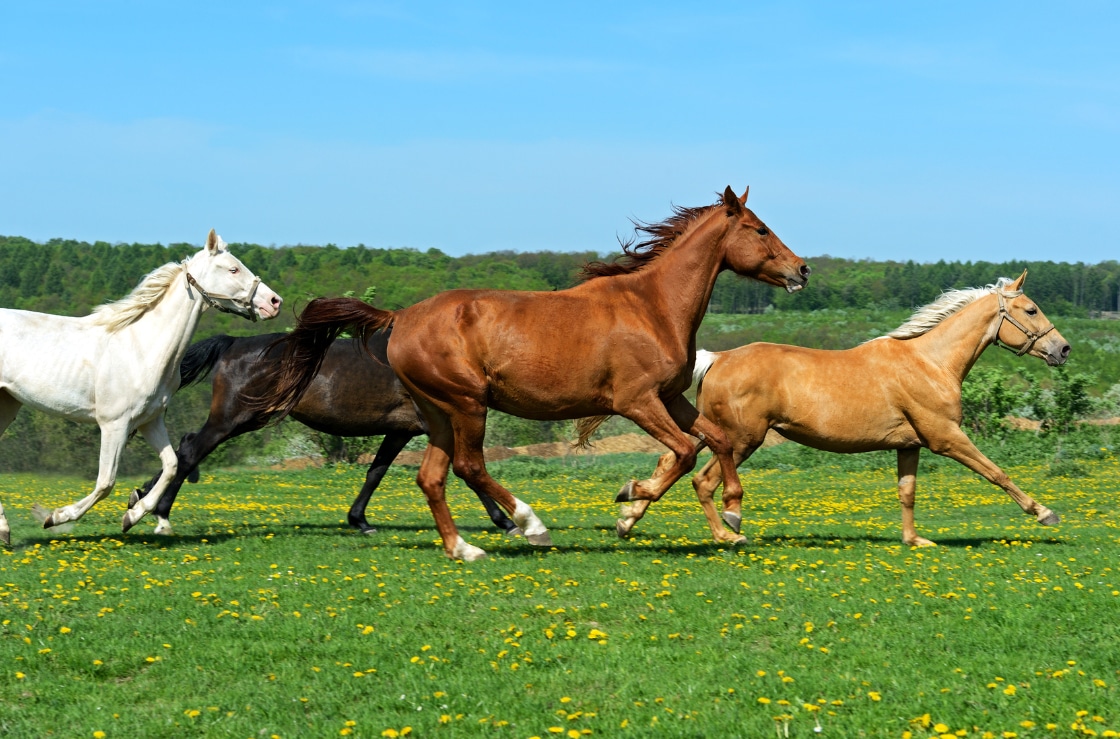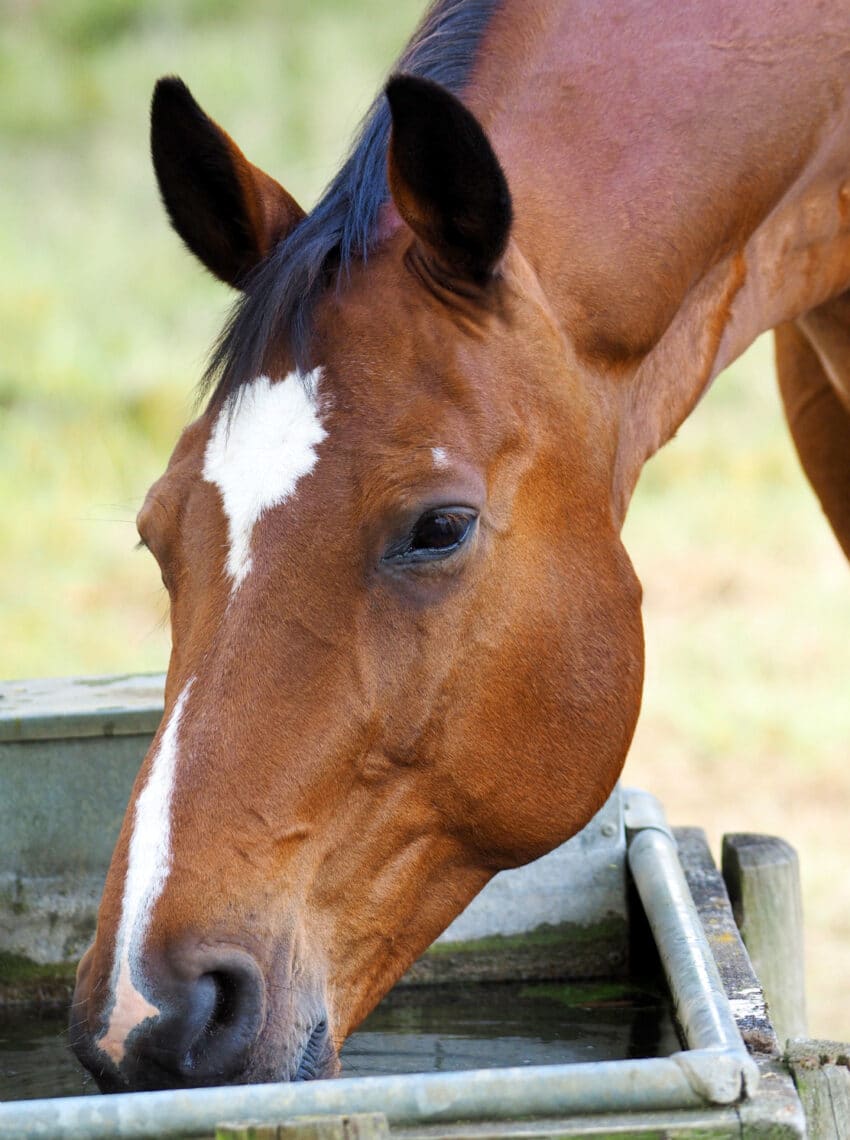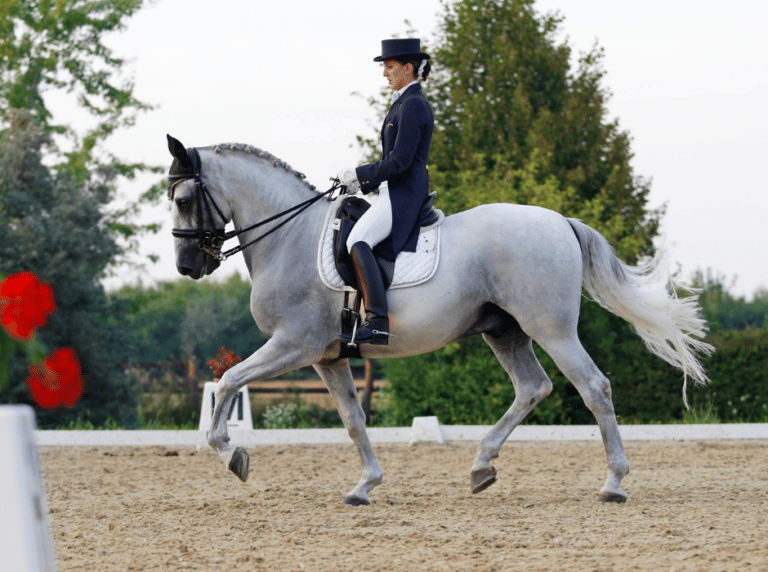Feeding performance horses properly is not rocket science, but the results can blast you out of this world, writes Equine Nutritionist LARISSA BILSTON.
A performance horse’s nutritional requirements vary over the year, as they move from spelling into light pre-season work, and then into harder work.
Feeding during a break
In most disciplines, equine athletes are given time to spell, when muscles and joints recover, and they unwind mentally. Ideally spelling will occur at pasture living in a herd, or with access to other horses they can touch over a fence.
Unless they’re overweight, feeding a spelling horse starts with providing as much roughage as they want to eat. At least 70% should be grass or grass hay and the remainder can be lucerne, clover or oaten/wheaten hay or chaff. If the pasture or hay is good quality it will probably provide all their protein requirements. Horses grazing mature pastures that have dried off and contain more stalks and seed heads than leaf will need leafy grass hay and lucerne to lift their protein intake.
When spelling, your performance athlete won’t require as much hard feed as they do during competition season, so only offer the hard feed necessary to maintain ideal body condition. For some horses, grass and hay will provide enough calories, whilst harder keepers will need some hard feed to prevent weight loss – and the quantity may vary over time due to changes in pasture quality and quantity.

It’s necessary to add vitamins, minerals and small amounts of fatty acids to complement the roughage and hard feed. Even the best pasture and hay in the world will leave your horse mineral deficient. Zinc, copper, iodine, selenium and vitamins B and E are almost always deficient in an unfortified diet. Minerals must also be in balance with each other. Even when a diet provides enough of every mineral, if the ratios between them are incorrect, your horse won’t be able to get enough to satisfy their requirements.
Feeding pre-season
Bringing your horse back into work after a spell, requires changes to their diet. Performance horses usually come back into training at a light work load for at least a few weeks, gradually increasing to higher work levels as the competition season approaches – and the work load directly affects their nutritional requirements.
If your horse is still grazing quality pasture as you begin light work, you may not need to make many changes to the diet. If you bring them into a yard environment for pre-season training, ensure you provide free choice access to quality grass hay to maintain optimal gut health. Monitor body condition carefully and if your horse loses weight, feed more calories by increasing the amount of hard feed.
Mineral requirements in light work are similar to maintenance, but when you feed more hay and workloads increase, add a multi-vitamin supplement and an omega-3 source. If you use pre-mixed hard feeds, these will contain some vitamins and minerals but often horses in pre-season work don’t need a full serve of feed, so you’ll need to top up with a balancer supplement.
Feeding competing performance horses
Feeding performance horses properly can mean the difference between winning and losing – it could mean a faster round, better focus, more expressive movement, and fewer errors. Correct nutrition for equine athletes is essential for them to perform at their peak, recover faster and remain healthy for more competition seasons.
Am I feeding enough?: At higher workloads, horses need more calories to fuel their performance. Their recommended daily intake increases from 2% of bodyweight to 2.5%, and most performance horses need more hard feed to maintain condition. This can vary significantly between individuals, from as little as 500gms for an easy-keeper on quality hay or pasture, up to 6kgs for a hard keeper eating low calorie forage. It’s normal to tweak the amount of hard feed to maintain your horse in optimal body condition, but make sure they have enough leafy hay or pasture before increasing hard feeds.
Vitamins, minerals and omega-3 fats: The harder a horse works, the greater their vitamin and mineral requirements. For example, a 500kg horse not in work needs at least 20gms of calcium a day increasing to 30gms/day for light work and up to 40gms/day for heavy work. Trends for other key minerals such as phosphorous, magnesium, potassium, sodium and chloride are similar. The requirement for sulphur, copper, cobalt, iodine, iron, manganese, selenium and zinc increases with work, but not to the same extent. For example, a spelling 500kg horse needs 100mgs/day of copper increasing to 125mgs when in heavy work.
A well-balanced premixed hard feed may provide your performance horse with all the vitamins and minerals needed when fed according to the manufacturer’s recommendations. However, if the mineral content isn’t a good complement to your forage mineral levels, or it’s fed at a reduced rate, a mineral balancer will be required.
To balance forage and hard feed, choose a mineral supplement carefully. The mineral requirements defined by the NRC are the minimum needed to avoid a deficiency, and in most cases, the optimal requirement is higher – so it’s acceptable to provide more minerals than the recommended daily intake (RDI), but the levels must be carefully balanced. Some minerals compete with each other at absorption points in the digestive system, meaning mineral deficiencies can occur even when you feed the RDI.
Fresh pasture is a natural source of many of the vitamins and oils horses need. However, pasture plants mown for hay lose omega-3 fatty acids and vitamins as they dry out. Hay contains similar mineral and omega-6 fatty acid levels to the pasture it was cut from, but is low in vitamins and has no omega-3s.
When compared to their requirements during a spell, equine athletes need additional A, D, C, E and B group vitamins to function at their peak. Although horses manufacture vitamin C in their liver and rely on their gut microbes to make B group vitamins, performance horses benefit from a multi-vitamin supplement to provide the levels necessary for hard work.
Due to either limited access or overgrazed pasture, most performance horses rely on hay to meet their forage requirements. Their nutritional requirements are higher than when spelling and they will need an omega-3 supplement, which should have at least three times more omega-3 than omega-6. Hard working horses also have higher antioxidant requirements, and a supplement helps prevent oxidative stress and aids recovery after strenuous exercise.
The stress of hard work, transport and competition impacts on the health of the horse’s gut microbial population, often leading to loss of appetite and reduced performance. Live yeast probiotics and prebiotic supplements that help support gut microbes will assist in keeping performance horses in optimum health.

For maintenance, performance horses need between 7 to 12gms of plain salt (sodium chloride – also known as stock, flossy, table and pool salt) per 100kg of bodyweight every day, even when spelling. There’s no need to pay extra for pink salt – the trace minerals they contain are insignificant compared to your horse’s
requirements. Remember to count any salt included in hard feeds and supplements when calculating how much salt to add to your horse’s hard feed. It’s safe to add the lower recommended amount of salt, and offer free choice salt (clean loose salt in a bucket kept under cover) so your horse can top up when required. During hot weather, transport, and after work, feed a low sugar supplement especially formulated to replenish electrolytes lost in sweat.
Electrolytes (particularly sodium and chloride) contribute to the thirst-inducing mechanism that encourages rehydration. A dehydrated horse without sufficient sodium in their blood will not know they need to drink more water and will instead excrete potassium. Therefore electrolyte supplements should only be provided to a horse already in a good sodium balance.
Larissa Bilston, BAgrSc (Hons) is the Equine Nutritionist for Farmalogic.



